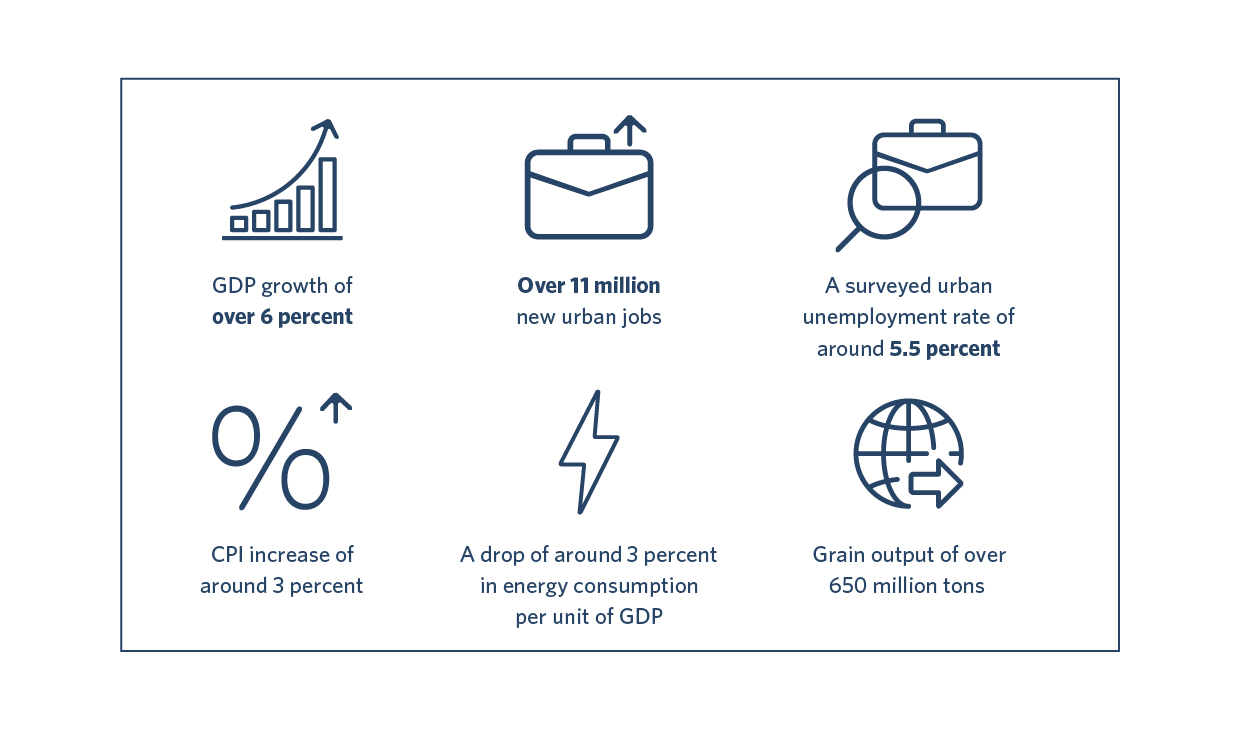Two Sessions 2021: Embarking on a new journey
This year’s Two Sessions, which has returned to the regular March schedule after last year’s postponement due to the COVID-19 pandemic, takes on special importance. As 2021 marks the start of the country’s new five-year plan and the centenary of the Communist Party of China (CPC), China is marching toward building a modern socialist country after realizing the goal of building a moderately prosperous society in all respects.
China has just declared a complete victory in eradicating abject poverty, on the way to pushing for higher-level development. In fact, China became the only major economy in the world to achieve positive GDP growth last year while withstanding a series of unprecedented challenges, from the pandemic to the US trade war.
With the 14th Five-Year Plan (2021-25) and the Long-Range Objectives Through the Year 2035 on top of this year’s agenda, eyes are on how the country will make further efforts to realize its socioeconomic goals and build a new development paradigm in the face of a complex internal and external environment. As Premier Li put it in his government work report, the objective is to resolve to progress amid all odds.
2021 Government Goals
Due to COVID-19, China did not set a GDP growth target for 2020. This year, China has taken a relatively cautious approach and set the GDP growth target for 2021 at over 6% after careful consideration. China’s economy has already been gradually recovering since the second quarter of last year, and the overall economic operation is expected to maintain growth this year. Due to the relatively low base (2.3%) in 2020, this year’s GDP growth rate is expected to increase by a higher margin.

Highlights of the Two Sessions
Modest tightening in fiscal and monetary policies while continuing to support market growth. Overall, this year’s fiscal policy is targeting a “quality, efficient, and sustainable” approach. Compared to last year, this year’s approach is more restrained, gradually returning to the normal standard pre-COVID-19.
Deepening multilateral and regional cooperation to forge new development pattern. Under the new development pattern of “dual circulation,” China needs to not only streamline domestic economic circulation but also foster a higher level of opening up on the international stage.
Continuing to stimulate domestic demand via better alignment between consumption and investment. The Two Sessions this year once again stressed the importance of “expanding domestic demand as the strategic base point,” focusing on stabilizing consumption and expanding effective investment to tap the potential and optimize the level of domestic demand, with the underlying intention to improve people’s lives while driving economic development at the same time.
Emphasizing independent innovation to tackle China’s technology bottleneck. Under the macro trend of “dual circulation,” more efforts have been contributed to encouraging independent innovation as a means to decouple China’s reliance on the foreign technology supply chain. Strengthening national strategic scientific and technological capabilities has been elevated to a national level, indicating that autonomous and controllable technologies will usher in a golden period of development.
Pledging to reach peak carbon emissions and carbon neutrality at full speed. China targets to accelerate the transformation towards green and low carbon development over the next few years through a mix of industrial planning, policy guidance, tax incentives, and financial support.
Improving people’s wellbeing as a priority among priorities. This year’s Two Sessions have put significantly more emphasis on people’s livelihood and wellbeing, providing well-rounded outlooks on key topics ranging from employment to population policies.
Highlighting rural revitalization and urbanization as a key strategy for sustained growth. During the 13th Five-year Plan period, the fight against poverty has been won. As the next step, moving towards rural revitalization while consolidating the achievements in poverty alleviation will be the focus throughout the 14th Five-year Plan.
About FleishmanHillard Public Affairs
FleishmanHillard’s public affairs specialists offer a dedicated team of experts in politics and policy, backed by the firm’s global communications network. Our people come from a wide range of disciplines that work in and around governments, including former senior government officials, journalists, campaign pros, and corporate and NGO veterans. The team provides in-depth analysis of policy and political issues, builds reputations with government audiences, and advocates on behalf of issues – in the world’s leading capitals and anywhere else.


